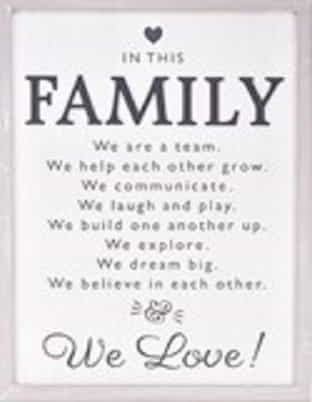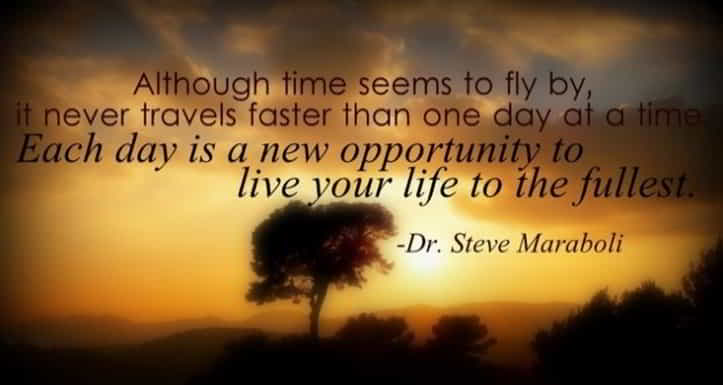FamilyDrive
FamilyDrive is about your family, relationships and how important keeping a family unit together is.
Everyone defines their family differently; some people have very close, big extended families, where everyone works together, and others have close tight knit families. Some people are virtually alone.
Here we’re defining ‘family’ as the group of people we care most about. Typically, it’s parents and children, but as we said it varies.
In a way children are the most important, as they have no choice but to be dependent on someone, normally their parents. We want to look after them, make sure they’re healthy and happy, and provide for their future.
FamilyDrive looks at different events that can happen to a family, and how you can be helped and supported during and after these events, and how in some cases you can plan for some of them.. In this fast-paced life it’s not easy for anyone to manage, grow and maintain a healthy family, and FamilyDrive provides a helping hand. Financial family wellness is really important because it affects the whole family not just the individual. Once we are on the journey it is so important to stop for a moment and think about protecting each stage of growth or development in your family situation. Also to think about the consequences if you were not there to guide the way forward.
Click on a heading below and see a summary, and if you're interested you can GO and read more about it!
FamilyDrive
Welcome to FamilyDrive. FamilyDrive is about families, relationships and how important keeping a family unit together is.
Everyone defines their family differently; some people have very close, big extended families, where everyone works together, and others have close tight knit families. Some people are virtually alone. Here we’re defining ‘family’ as the group of people we care most about. Typically, it’s parents and children, but as we said it varies.
Click on a heading below and see a summary, and if you're interested you can GO and read more about it!
Here are some initial thoughts about family. GO!
Here are some facts and stats about family. GO!
A strong family network is good for children and for families too. GO!
There are benefits to your physical health in spending time with your family. GO!
Spening time with your family improves your mental health too. GO!
Time flies, and it’s the same with families. GO!
Wellness is important to families as well as individuals GO!
See what can be done when a family breaks up. GO!
Can you make co-parenting work? GO!
If you’re a visitor to our site you can join and download information, assess your own health and create your own action plans, and even contribute to our site. GO!
See the next steps you can take. GO!
We have some additional information and stuff on this subject. GO!
Some Initial Thoughts

The family seems to be the most underappreciated group on the planet
We often don’t realise or truly appreciate what a good family upbringing is.
Family is the single most important influence in a child's life. From their first moments of life, children depend on parents and family to protect them and provide for their needs. Parents and family form a child's first relationships.
As children grow they learn to communicate emotions in a healthy way primarily by observing their family members. By doing things together, family members enhance the emotional development among children.
Remember, we were children once!
Facts About Family
In 2020 there were 19.4 million families, an increase of 1.4% on the previous year, with a 7.4% increase over the decade from 2010 to 2020.
In 2019 Marriages in the uk are declining on average of 3.6% : Statistica.com
There were 2.9 million lone parent families in 2020 this is up from 1.8 in 2017
The number of people living alone in the UK has increased by 4.0% over the last 10 years; in 2020 the proportion of one-person households ranged from 22.8% in London to 33.6% in Scotland and the North East of England: ONS
In 2019 there were over 24.1 million married people: statistica.com
42% of marriages in the UK end in divorce. The latest statistics show that 108,421 couples divorced in 2019 this is an increase of 8.9% :ONS
Average age for heterosexual marriage 35 for women and 38 for men 2021; harperbazaar.com
4.1% decrease in birth rate in 2021. This decreasing trend continues and reached a record low in 2020

Why a strong family network is good for children and families?
We know that social and emotional skills – such as self-awareness, social awareness, relationship skills, emotional regulation and responsible decision-making – play a crucial role in a person’s development. Research shows that children from strong family backgrounds with stronger social and emotional skills are more likely to graduate from college or university, to succeed in their careers, to have positive work and family relationships, to have good mental and physical health, and to become engaged citizens. They are less likely to get involved in crime or antisocial behaviour.
Here we show some facts and figures you might find interesting about debts around the world.
According to Wikipedia. "In economics, the debt-to-GDP ratio is the ratio between a country's government debt (measured in units of currency) and its gross domestic product (GDP) (measured in units of currency per year). A low debt-to-GDP ratio indicates an economy that produces and sells goods and services is sufficient to pay back debts without incurring further debt.""
The chart on the right shows that (surprisingly for us) Japan has by far the highest debt-to-GDP ratio at 257%. The UK is shown in the 4th tier at 109%, and the US in the third tier at 133%
Click on any of the tabs on the right to see more information
Martim B said about this video:
“All images and music have protected rights and are not owned by me.The use of the images and speeches in this film are decontextualized in order to convey a cohesive message of the importance of the family in today’s world, a world that has global problems on life philosophy due to a rapid technological change. This film in no way denigrates the image of the participants in the images.”
Emotional wellbeing and self-esteem in childhood are particularly strongly associated with good mental health in adulthood. Children’s social skills, self-control, self-regulation and self-efficacy also appear to be important to adult mental health and wellbeing. Providing a well-balanced environment with parents paying attention to children’s learning not just academic but life learning Is critical.
Leading by example: parents who show and tell are more likely to have a better engaged child. Family learning, games, outings, interactions, engagement, balanced discussions and arguments all lead to children becoming rounded adults.
Research indicates that half of all mental health problems are present by the age of 14. Mental health problems during childhood and adolescence are strongly associated with substance misuse and antisocial behaviour in adolescence, and ongoing mental health problems in adulthood. Adult mental health problems, in turn, have a negative impact on participation in the workforce, income, relationships and physical health. A family unit can identify signs at an early stage with parents and other siblings supporting individuals.
It is clear that fostering strong social and emotional skills provides an important protective factor against the risk of long-term wellbeing. Like cognitive capabilities, social and emotional skills can be taught and developed through childhood, adolescence and beyond. There are clear opportunities for early intervention to improve social and emotional skills before children start school, and during the school years.
We can see the same cycle in other areas of childhood development too.
Cognitive development: Children are born with a set of competencies which facilitate their early learning, but learning is also shaped by the family, community and society. Early cognitive development, including speech and language development, is predictive of later cognitive capabilities, including academic achievement in primary and secondary school and later employment opportunities and income.
Behavioural problems: Most children outgrow aggressive and defiant behaviour by the time they are 3, but a minority of children will carry on behaving aggressively once they enter school. Behavioural difficulties identified in early childhood are predictive of a variety of problems as children grow older, including antisocial and criminal activity in adolescence in adulthood, mental health problems, substance misuse, higher rates of hospitalisation and mortality, academic failure, greater unemployment, family breakdown, and intergenerational transmission of behaviour problems to children.

Health Benefits of Spending Time with Family
In our world of pervasive screen time and social media, many of us have actually become less social in the ways that are not only beneficial, but essential to our mental and physical well-being. A Cigna study from the American Journal of Health Promotion indicated that excessive social media use is one of the biggest risk factors for loneliness..
We need in-person interactions to reap the full benefits of social connection. Those who experience less loneliness cultivate meaningful relationships, including a social network and a committed relationship..
See the tabs below for more information.
Click on any of the tabs on the right to see more information
Some advantages of having a family are increased happiness and satisfaction. Studies have shown that spending time with family can help reduce stress and anxiety, lead to a healthier lifestyle and lengthen your life. Family gives you motivation to be the best version of yourself. At Highland Springs you can enrol in family counselling where there are trained therapists that specialize in helping to restore family relationships.
11 Powerful Habits of a Healthy Family, good habits of family members, family habits and practices.
Family is so important because of all the love and support it provides. Being with family helps construct principles and improves overall mental health. Spending time with family is key to a person’s development as it promotes adaptability and resilience. Such key lessons can only be taught by family members coaching each other regarding life’s ups and downs. Family is what makes us who we are.
With the right kind of activities, spending time with family can positively impact physical well-being. For instance, families who eat home-cooked meals together tend to have a better diet than those who don’t. Participating in outdoor activities like sports games, hikes, or gardening together helps to improve fitness. There’s even evidence that time with family can boost the effects of exercise and other healthy habits. It improves heart, brain, hormonal, and immune health. Being with family can also encourage one another to maintain healthy lifestyles.

With all these incredible benefits of a supportive social network, you can see why spending time with family is important. While it’s fun to invite friends and family to spend quality time together, it’s also a significant aspect of your physical health and mental well-being. Put down the phone, gather together, and create some fun, meaningful memories. Making time to connect with family requires a bit of planning—sometimes a bit of money—but the investment is well worth it for the outcomes of healthy individuals and strong family bonds.

Improves Mental Health
Spending time with family—especially face-to-face communication, as opposed to digital—significantly reduces the occurrence of depression, anxiety, and other mental illness. Being physically present with loved ones creates a strong emotional support to buoy you up through life’s challenges.
Click on any of the tabs on the right to see more information
On average, kids who are spending time with family, tend to do better in school. They learn communication skills and the importance of education. When needed, assisting with assignments or new concepts reinforces the fact that their success is important to you. Even just asking about their day and what they’re learning will show your children how much you care.

Children who are spending time with their family have shown less risk of behavioural issues, such as violence and substance abuse. When they receive positive attention for positive behaviours, it increases their desire to continue those healthy patterns. Being with family and doing activities together also provides an outlet for pent-up emotions that could otherwise lead to unhealthy decisions. Family is so important when it comes to a child (or teenager) bringing problems to you, because your advice can allow them to become better equipped to cope with problems and make positive choices.
Spending time with family builds confidence for all of its members. Parents can teach children to build self-esteem through specific skills such as problem solving and communication. They can also model the ability to love oneself without degrading others. For parents and children, confidence grows simply with the knowledge that they are valued and appreciated by their loved ones.

The memories you create together will instil in children a desire to foster that same loving atmosphere in their own future homes. Family is so important because, through your example, your kids learn important caregiving skills that they can use one day. They may even practice now by copying your behaviours when they interact with siblings.
Being with family is fun, but it can be difficult, too. When conflicts arise, you can’t just walk away for good. You’re in this together, so you have to work together to solve the issues that come up. Spending time with family teaches interpersonal communication skills including healthy, constructive ways to discuss, debate, and solve problems.

Those with strong family healthy relationships tend to seek out healthier coping mechanisms for stress—such as confiding in friends and family—instead of other unhealthy outlets. This establishes a habit of talking through problems together to relieve stress and find effective solutions.
Stress also significantly affects aspects of physical health, such as fatigue, blood pressure, and heart health. The Annals of Behavioral Medicine conducted a study that found when people discussed hardships in their lives with a friend beside them (instead of alone), they had lowered pulse and blood pressure readings.

Your ability to face life’s changes and challenges is greatly improved by a strong family bond. Being with family gives you the feeling of knowing that you belong, you are cared for, and you are needed, which gives a sense of meaning and purpose. This assurance gives motivation to push forward, grow, and succeed.

Family Situations
Time really does fly and each 7 years or so we go through mental and physical change. AS a child we don’t feel the time flying on the contrary school seems to be forever, but from a parent’s perspective each 5 years feels like 1.5 years.
In our twenties we are so focused learning all about life, enjoying our adult freedom and following our career path. Before we realise it we are 30.
Talk to anyone 55 and they will say my god I cannot believe I am 55 it seems like 25 years was really 10, What happened?
The tabs below look at some different family situations, some based on age and some on circumstance. Bear in mind the above quote – each day is important!

Click on any of the tabs on the right to see more information
Starting a family or adopting is a major decision and should not be taken lightly – it’s a lifetime’s commitment. All too often people become pregnant through emotion and do not have the right support or finances to support a newborn child. On top of this it’s not easy raising children, particularly in the modern day. Getting support from grandparents is ideal but sometimes they are not available for a variety of reasons. YouDrive is all about getting support or self-education. There is so much information out there if you choose to look for it – see the NHS help section on Maternity
Knowing what you’re entitled to is also important and the HMRC site can help you calculate your entitlement
Planning and making sure you have enough money to give your child a good start is critical. If you’re short of money this leads to increased stress and anxiety which means you behave in a different way towards your child so planning is critical.
One excellent site full of help and support on bringing up children is the Government Money Advice Service. There are calculators and guides, all in simple English
Managing your finances is one thing but also understand what other benefits are available is equally important. This excellent government organisation; Working Families provides a significant amount of guidance and information about all areas of work, benefits, rights and things such as flexible working
Not only are there support organisation but you should also look at other support groups such as Mumsnet – and netmums

Kids do grow very quickly and things change. Try to plan ahead and forecast what’s going to happen by looking and talking to others. See .dots for understanding childrens’ behaviour. Once children are at school age, what then, and what’s your part in this?
Parentkind can help prepare your child for school. There are a list of support organisations likeTurn2Us and the US Parents providing insights in bringing up young people. Discipline is key for children, and difficult to get right. Smart Parent Advice have a good article on how to discipline your child.
When children get past ten they are already turning into mini adults (sometimes!!). You will see a massive change from 10 to 15 and again you need even more support and education in dealing with young adults. We want to treat them as we were treated and learning from your parents is a good thing, but each generation is slightly different and there are different circumstances that require a different approach. Today it seems to be harder than ever to grow up, with social media pressures and a threat of violence. See the Wise Up report under More Info.

Moving schools can be difficult – see what Family Lives say. The Nuffield Foundation support wellbeing through education, research and innovation and they provide access to the report on School Transition and Adjustment Research Study (STARS) – see More Info below.
Parents often look at their child in a loving emotional way rather than clinically – your child is made up of DNA from a number of sources with traits and characters. Look for your child’s characteristics – some might be musical or sports or mechanical – and try to foster them.
As we said earlier raising a family is not easy when there are two people engaged in the process, but what happens when you are a single parent bringing up a child (Superman or Superwoman?). Working and raising a child alone is hard work in all ways: financially, physically and mentally. Gingerbread are a charity supporting single parents, as are Single Parents There are benefits for single parents – see the guide from Lionheart – and support organisations such as Care for the Family

Family Wellness
As parents and grandparents and leaders of the family it is so important to take that view. We are leaders of this family group and our collective jobs is the make sure this clan, tribe, survives and prospers in all ways.
See the tabs below for more information.
Click on any of the tabs on the right to see more information
As parents, guardians, grandparents we are the leaders of our team in a way. As our team gets bigger and we build multiple layers within the team with grandchildren or adoption or marriages etc. we need to learn to lead and manage in a different way. YoungMinds give help on how friends and family can help you stay mentally healthy.
When we were just two people it was easier but as we get older and the team gets bigger and older we have to learn to respect other people’s views as well.
If you imagine running your family like a work team you would approach it in a different way. In fact we can often take learned examples from family life and put them into work team life and vice versa. At work you check on your team and make sure they are engaged and you’re aware of their needs and desires. You also review your team’s direction and make sure everything is operating correctly. Why not try this with your family team. The Drives in YouDrive are ideal to check your family health, financially, physically and mentally.
Another area of family life is dealing with each other. Life today is very hectic – two people come together and love each other and hope this will carry them through. Often it does not and people separate after some traumatic times. A number of organisations provide help with relationships – see Relate here and Supportline.
There are thousands of books and articles and institutions out there who can offer advice and guidance. Family Lives offer advice in a number of situations.
Couples do split up and go separate ways and whilst this is a sad and highly charged situation, individuals have to put their own personal feelings to one side and consider others too. Children and pets can enjoy life split between parents and have a rich and fulfilling upbringing. Two birthdays, two Christmas days two sets of holidays. Making sure people are not bruised and damaged physically or mentally is the key to building a life as split partners.
When we lose a member of our family, it causes enormous pain and makes us feel lost and alone. YouDrive hope that with support those remaining can build hope for the future and rebuild their lives, always remembering those who have passed but moving forward.
Whether the person leaving the family is an unborn child or an elderly relative, it always has a significant impact on those left behind.
If it is an unborn baby, this will still have a huge impact – see NHS guidelines or advice from babycentre. If it’s a child the ChildBereavement UK can support you.
Cruse Bereavement Care is a charity established in 1959 providing telephone email and website support to bereaved people.

Family break ups
Unfortunately, relationships can break down. People fall in and out of love. Children are often caught in the middle with custody battles and access always a problem. These are often the main issues as well as who is paying or getting what financially. Over time these things can be ironed out either between two sensible people or through the legal channels. But love is very emotive and break ups are rarely equal. Sensible balanced parents should think; we haven’t fallen out of love with the children and they must be the key priority. Alas this is often not the case in many situations adults try to use a child either as a weapon or deliberately use the children for revenge. Parents what happens to children should think jointly about what is best for the child...
Marriage breakup can have some positive as well as negative impacts; it is still fair to say that in a traditional household the mothers still bear more of the child duties than the father. In a divorced situation the father has to step up and be mum and dad when the children are with him and vice versa the mother has to do the same. From a child’s perspective if they have lots of love from both parents then life can be good; two birthdays, two sets of school holidays, two festive holidays. Statistics show that within a split relationship parents will spend more quality or focused time with their children as it’s often split between them. The question is; is it better to be a child growing up in a family with two unhappy adults who fight all the time or be with two parents who are happier apart.

Co- Parenting can it be a success?
Co Parenting can be a success for all concerned if the parents act like adults. The animosity against each other eats away like a cancer at a family causing atmosphere, unhappiness, violence and aggression even verbal. Children can come to terms; they are very adaptive if co-parent put them first and create a new loving and strong and dependable environment. But that is easier said than done. But there are many good examples. A co parent that holds a grudge or hatred for their ex-partner can cause immeasurable damage to a child, even if the co parent is tries to conceal it.
For visitors
Why don't you join us?
You can register to join us as a member, when you’ll be able to download our stuff and comment, or as a YouDriver when you’ll also be able to check your health and set up your own action plans to make some improvements. If you’ve already registered, sign in below. Or let us know what you think.
Focus on the family
Focus on the family
Dr. Gary Chapman and Dr. Shannon Warden compare family life to renovating a home — you need a good “blueprint” or plan for how you want your family to grow, and a solid foundation of godly character traits like kindness, love, forgiveness, building trust, building connection, and having fun together.
Parents and kids need to be “all in” and working as a team to instil these traits into their relationships.
Dr. Chapman also talks about the 5 Love Languages, and Dr. Warden shares several stories about parenting her own children.

Next Steps
It doesn’t matter what stage you’re at – it’s important to be the best you can be. At the end of the day it’s about taking personal responsibility – You Drive!
It’s really your choice. You can find out more information about the subject, or see other institutions that can help by going to Support. There you will find organisations, training, coaching, self-help courses and other items to support your personal change. We have also started developing a panel of experts to provide info, advice, help and support.
Get Support
There are times when you need some help to meet your aims – a helping hand. That might be an organisation that can provide you with some help, some specialised information, a particular book or tool to help, or just getting some background reading material.
We have a lot of items which appear on our Drives and other pages, which you can go to by clicking on the picture or link. Some contain affiliate links and we may receive a tiny commission for purchases made through these links.
If you know of anything which could help you or our other visitors then please click the button on the right, which will take you to a Contacts page where you contact us.
Experts
We are compiling a list of experts who can provide advice, help or specialised services. You will be able to access these experts from anywhere on our site you see our ‘Experts’ symbol. Click the green E to see what our Experts list will look like, with a couple of imaginary ‘experts’ added!
More Information
Scroll down to see more information on this Drive.
If you register you can also download reports, white papers, quizzes and other collaterals. We will never ask you for any financial information, and we’ll only send you the information you want. You can register for our site either above or in the footer below. You can provide your own questions and experiences in order to help other members. We only moderate for spam and inflammatory language – see our moderation policy.
If you’ve found this interesting, then please share it on social media. Choose your network!
More information
Raising Kids Who Care
Practical conversations for exploring stuff that matters, together
PRIZE WINNER: BEST INDIE AND ROYAL DRAGONFLY BOOK AWARDS
Imagine knowing what your kids care about, having them listen to what you care about, then doing something about it, together! Communication and connection are the key, and this is exactly what this book allows you to do. It guides you through 40 conversations to have with your kids, ones that really matter. You will start having meaningful fun, learn to build friendships, grow in contentment, explore issues, and decide how to make an authentic contribution to the world, together.
FUNdamentals of Parenting
12 Fun Strategies To Build Strong Family Relationships
The best compliment I can give Jaime’s work is I’m going to make this required reading for all parents who walk through my door. No joke. Required reading. – Jon Filitti, LMHC, Filitti Counselling
Stop Missing Your Life
Don’t Look Back In Regret – You Only Live Once Make The Most of It
I challenge each and every one of you to live your life to the fullest, to live a life without regret, and that starts by taking action on the things that matters the most. It is not always about becoming a millionaire or a billionaire, because money can’t buy everything. Remind yourself that life is short and not worth wasting.
The Book You Wish Your Parents Had Read
(and Your Children Will Be Glad That You Did): THE #1 SUNDAY TIMES BESTSELLER
In this Sunday Times bestseller, leading psychotherapist Philippa Perry reveals the vital do’s and don’ts of relationships.
Your Journey to Co-Parenting
This book is an introduction to co-parenting. It offers a jump-start to effective co-parenting for young, never-married, and/or non-custodial parents seeking to improve their child’s well-being and chances for a brighter future.
See how to couch your financial fitness as set out by MoneyHelper
See how much a baby costs with this calculator from MoneyHelper
Look at the options for separation / divorce as set out by MoneyHelper
Download the School Transition and Adjustment Research Study (STARS) report from UCL and Cardiff University on making the move to secondary school
Download the WiseUp report from the National Childrens Bureau Young Minds on prioritising wellbeing in schools



















